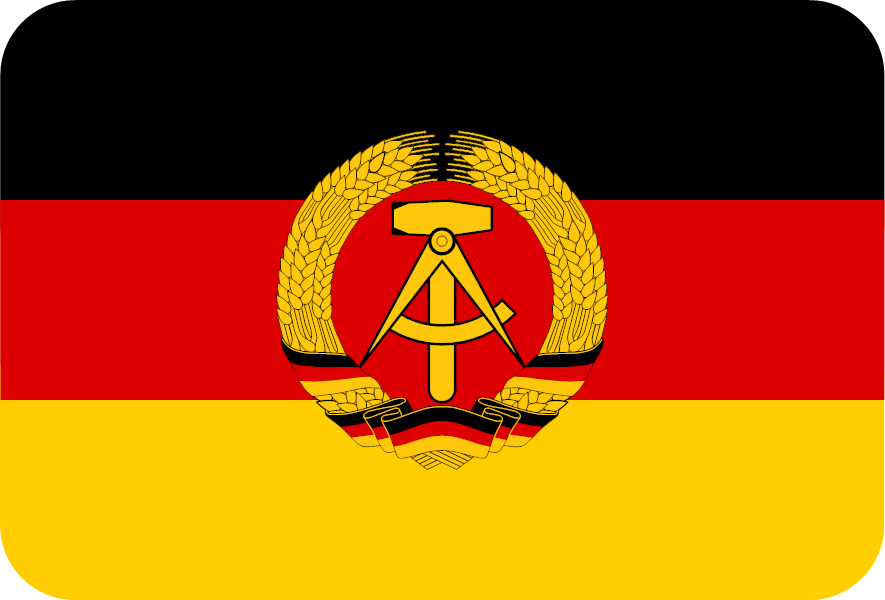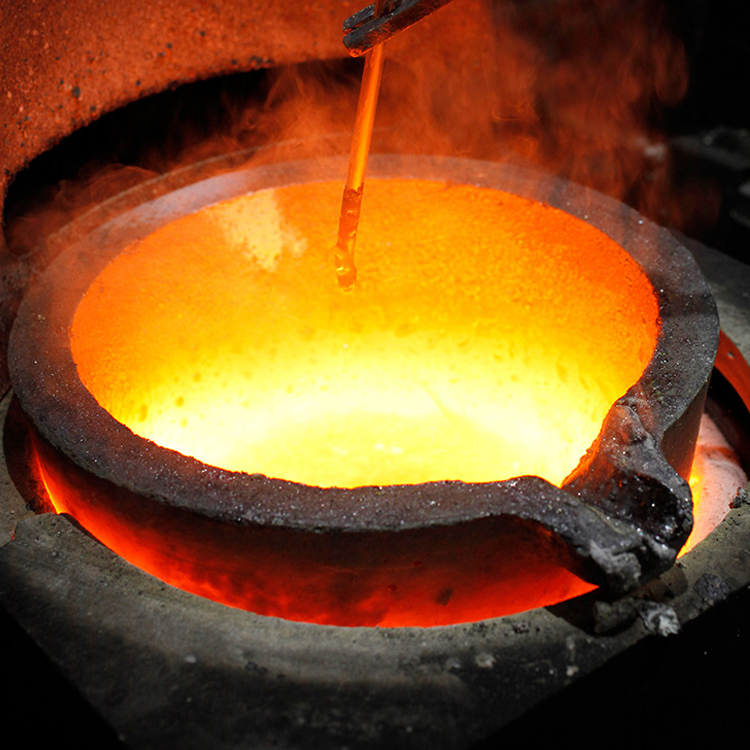Russia, Ethiopia: mostly orthodox
Cuba, Angola, Congo-Brazzaville: mostly Catholic
Burkina Faso: mostly Muslim
Asian ones: too obvious to discuss
I have an inkling of a theory why
I think we simply haven’t had enough successful proletarian revolutions to get any statistically significant data on the role of religion.
For various reasons Protestantism is mostly associated with northern Europe, which also happens to be solidly imperial core. As a general trend, northern Europeans has been one of the places with the least material pressure to revolt.
Put Norway under brutal foreign colonial rule for a few generations and subject them to crushing exploitation and poverty and you’ll see them radicalise just as the Cubans and the Chinese did.
Put Norway under brutal foreign colonial rule for a few generations and subject them to crushing exploitation and poverty and you’ll see them radicalise just as the Cubans and the Chinese did.

Not aiming this at op, who presumably has an interesting theory cooking, but ngl I’m getting kinda tired of all these ‘left theological’ takes. The forces of reaction are currently sweeping across the west, abetted by an alliance of evangelical and catholic orgs and there are still people who want to blame everything on ‘calvinism’ as if that were useful analysis and not just thinly veiled sectarianism.
the strain of that informs a lot of the current/last 50+ years of evangelical thinking and they’re ascendant in power. it’s surface level, but it’s not wrong
Catholicism has been way more influential on the US right ever since the nineties. Catholic orgs were instrumental in getting GWB into power and have led the charge in capturing the supreme court, rolling back reproductive rights etc. A majority of SCJs are in fact Catholic, and many leading political figures, including the VP. Catholic dogma informs the social policy around which this block agitates. However, none of this is to say that there is something uniquely problematic about belief in transubstantiation or whatever; my point is that trying to pin political problems on theology is an absolute dead end.
It really doesn’t and isn’t. The guys running the evangelical right arent the fucking Presbyterians.
What about
 ?
?Didn’t have a genuine successful revolution. Was pounded into submission by soviet artillery and troops and the ruins of it taken by force by the USSR in the course of the war and occupied after with the socialist government installed, reactionaries pushed aside by outside occupation forces. As we saw Germany itself went fascist rather than communist and they crushed the organic efforts of German revolutionaries.
TBH, pre-1933 support for communists in Protestant areas was significantly higher than in Catholic areas.
If Germany had been Balkanized after WWI the North and East were more commie than the rest. May have actually seen revolution in a subset. Of course the conditions of Balkanization would make a big difference, though.
The North + East are and were the more protestant areas while the South and Austria were more catholic. The latter were hotbeds of Nazis. Famously, the Hofbraeuhaus in Munich is where much of The Holocaust was decided.
I hope you’re not suggesting that Catholicism has any particular level of compatibility with communism, since the Catholic Church has been an explicitly anticommunist entity for some time now and we can see e.g. in Cuba that Catholicism gets in the way of social reform, which has over and over been accomplished in spite of and by overcoming Catholic prejudices rather than with the support of Catholic teachings.
Protestants are way more conservative and reactionary than Catholics in Latin America thanks to US influence. All the small protestants churches that existed before were repressed by the US backed military dictatorships because they were seen as too liberal (which radicalized them to be more left-wing and united with their left-wing catholic and jewish counterparts during the 1970s).
Usually Catholics are seen as more liberal because the majority of the population are Catholics or have a religion that has strong ties with Catholicism (be Espiritismo or some Native/Afro-Latino Religion). Meanwhile Protestants megachurches promote shit like Zionism, Anti-Communism and Anti-LGBTQ+ stuff. There are small groups inside these Protestants Churches that actually support Left-Wing policies (such as being critical of Israel, supporting LGBTQ+ rights, Native Rights, etc…) and Left-Wing candidates (which you can see in Brazil, Colombia and Venezuela) but they keep the Protestant rhetoric.
The vast majority of Protestant practices are disgusting, I’m not taking their side in some sectarian fight. I’m saying that Catholicism is also ultimately a conservative-to-reactionary social formation that has impeded communism, and victories for a genuinely socialist left among Catholic populations has generally been in spite of rather than because of Catholicism (as I would say for Protestantism).
I mean, capitalism dialectically emerged alongside Protestantism, so it’s not surprising that the most developed capitalist economies might tend towards Protestant, and least in historical backgrounds. Two of those states (UK and Holland) created vast settler colonial empires. I only think this is meaningful in understanding how Protestantism and capitalism emerged together.
Holland isn’t a country.
How did Zionism infiltrate American Christianity and sway them away from Socialistic policies?
British theologian John Nelson Darby developed “Dispensationalism” which interpreted biblical prophecies as mandating Jewish return to Palestine before Christ’s Second Coming.
This spread throughout the late 19th century (1850-1900) and was published in the 1909 Scofield Reference Bible (a text funded by capitalist backers and disseminated widely in American seminaries).
Figures like Jacob Schiff (Kuhn, Loeb & Co.) and the Rothschilds financed Zionist projects, including early settlements in Palestine. Capitalists purchased religious newspapers or sponsored pro-Zionist content. The Rothschilds and associates influenced outlets like The Fundamentals (1910–1915).
Wealthy Zionists such as Bernard Baruch and Louis Brandeis (a Supreme Court Justice) funded groups like the Federation of American Zionists (1897). They coordinated with clergy to frame Zionism as a moral imperative, leveraging pulpits for political advocacy, such as endorsing the 1917 Balfour Declaration (British government expressing support for the establishment of a “national home for the Jewish people” in Palestine).
Early 20th century Christians were VERY socialist, their voting numbers were growing at an insane rate. They needed to shut that down, and flooded the Church with heavily-capitalist ideology to sway voters towards the establishment (and consequently zionism).
Why does it matter?
CUFI (Christians United For Israel) is much, much larger than AIPAC. They are a 501©(3) religious nonprofit, so any donations to Zionist candidates are entirely un-trackable.
The USG want you to be mad at the people “over there” (or to make right-wingers mad at “the jews”) and not the people here (who own all of the capital and the government of the people over there).
There are not that many majority protestant countries to begin with. In most protestant countries. Most protestants share space with Catholicism, eastern-orthodoxy or islam. “Pure-protestant countries” are basically the nordics, some-oceanian countries and collection of countries within southern africa. You have DDR of course that was majority protestant.
Protestant countries are basically just Anglos and Northern Europe. All imperial core and subject to the issues with revolutionary potential described by Marx, Engels et al. In addition, many foci of revolution have been national liberation struggles, particularly in colonies, and the protestant colonizers did not prioritize proselytization, missionaries, or integration in their colonial projects. They enforced white supremacy and did settler colonial genocides instead. So colonies of protestant colonizers did have successful revolutions, including proletarian ones, but they were often not protestant, instead reflecting more their immediate historical demographics.
One might suggest that there is some kind of link between The Protestant Ethic and the Spirit of Capitalism
:weber-shining:
deleted by creator
someone should make a Mormon communist country
If god supported communism he would’ve given Br*tain to The Levellers
What if we had communism but the anglos weren’t invited that would be so funny!
(Quebec is fine but y’all are on thin ice)
Quebec is fine but y’all are on thin ice
I imagine they are. I hear it’s quite cold up in KKKlanada.
Estonia and Latvia are the exceptions that prove the rule.
But then Lithuania, Poland, and Hungary are proof that a Catholic country that goes communist is just as prone to springing back into fascism as any others.
deleted by creator
Grenada is plurality protestant now, but I guess it could have been more catholic back in the commie days?
and Eric Gairy was a Catholic
I have an inkling of a theory why
Is it the same tired nonsense about how protestantism is uniquely bad as a religion peddled by everyone else with pretenses of radicalism?
Because at this point I may start going back to church out of sheer exasperation with that ridiculous shit.
It’s not uniquely “bad”; I do think it is uniquely exploitable by capitalists
You’d be wrong there too. The difference lies in the material conditions of the states involved, not in whether the dominant culture is typivally associated with a professed belief in sola fide.
Catholicism (at the state level) has a historic legacy of combating the rise of capitalism (in favor of preserving Feudalism) that Protestantism does not have (and in fact has a historic legacy of the opposite).
For elaboration of this claim, check my comment history circa 9 days ago.
The Catholic Church has a historic legacy of being reactionary (Just as many Protestant churches do) and that has led it to opposing any kind of progressive or revolutionary movement, be that liberalism and capitalism (Or indeed just “less terrible feudalism”) or socialism. The Catholic Church in doing so has supported capitalism (And fascism), including carrying out economic liberal reform on behalf of regimes like Franco’s.
Likewise the first political crisis faced by protestantism were the jacqueries of Luther’s time, and Luther was very much on the side of the feudal order in that conflict, as were the national churches of the scandinavian countries during their reckoning with serfdom.
Cool. Seems like you know a lot about this.
My primary point is that capitalism and Protestantism reinforced each other until both became dominant within modern empire (UK --> US).
I concede that Catholicism eventually capitulated but that doesn’t much erode the point that it resisted while possible and isn’t the most exploitable form of Christianity for capitalism. To be clear, I do not claim that Catholicism is in any way progressive.
My primary point is that capitalism and Protestantism reinforced each other until both became dominant within modern empire (UK --> US).
And i just think we should re-examine that claim by Max Weber from a materialist/marxist perspective. As Marx pointed out, the relative early development of capitalism in Northern Europe came in part out of the different property relations that existed within these countries, the loss of the commons in the UK is one such example. This was not caused by an abandonment of Catholic doctrine.
Likewise explicit feudal obligations were retained in Scandinavia for almost a century longer than they were in France, supported by the Protestant national churches. Explicit codified serfdom was reintroduced in Denmark under a protestant regime, having been abolished under a catholic (Or at least pre-reformation) one.
I can appreciate that criticism; it is, if nothing else, reductionist.













